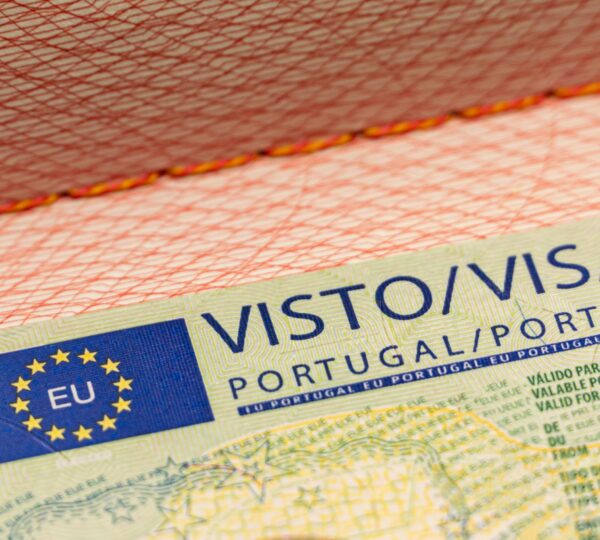
Real Estate Portugal: A Guide to Renting or Buying Property as a Foreigner
Portugal Real Estate: Portugal is one of Europe’s most attractive destinations for expatriates, retirees, and investors due to its mild climate, affordable living, and high quality of life. Whether you’re looking to rent or buy a home in Portugal, understanding the legal and financial aspects of real estate transactions is essential. This guide provides a comprehensive overview of the process for foreigners renting or buying property in Portugal.
Renting Property in Portugal
Portugal Real Estate:Finding a Rental Property
- Online Listings – Popular websites for rentals include Idealista, Imovirtual, and OLX.
- Real Estate Agencies – Working with a local real estate agent can simplify the process.
- Word of Mouth – Expats and locals often share rental opportunities on Facebook groups and community forums.
Portugal Real Estate: Rental Agreements
- Lease Duration – Most rental contracts are for 12 months, though shorter options are available.
- Security Deposit – Typically 1-3 months’ rent.
- Utilities – Check if utilities like electricity, water, and internet are included in the rent.
- Required Documents –
- Passport or Residence Permit.
- Proof of income or bank statements.
- Portuguese Tax Number (NIF).
Rental Prices by Region
- Lisbon – €1,000-€3,000 per month for a city-center apartment.
- Porto – €800-€2,000 per month.
- Algarve (Faro, Lagos, Albufeira) – €600-€2,500 per month.
- Coimbra & Braga – €500-€1,500 per month.
Buying Property in Portugal as a Foreigner
Can Foreigners Buy Property in Portugal?
Yes, foreigners can purchase property in Portugal without restrictions. Property ownership can also qualify buyers for residency programs such as the D7 Visa (for retirees) or the Golden Visa (for investors).
Steps to Buying Property in Portugal
1. Obtain a Portuguese Tax Number (NIF)
- This is required to complete any real estate transaction.
- Can be obtained from a tax office or through a lawyer.
2. Open a Portuguese Bank Account
- Needed for mortgage payments, taxes, and legal transactions.
3. Work with a Real Estate Agent and Lawyer
- A real estate agent helps find properties and negotiate prices.
- A lawyer ensures there are no legal issues with the property.
4. Conduct Due Diligence
- Verify ownership and debt status via the Land Registry (Conservatória do Registo Predial).
- Request a Caderneta Predial (property tax document) for details on taxes.
5. Sign a Promissory Contract (Contrato de Promessa de Compra e Venda)
- This legally binds both buyer and seller.
- Requires a deposit (usually 10-30% of the purchase price).
6. Finalize the Purchase
- The Escritura de Compra e Venda (Deed of Sale) is signed before a notary.
- The remaining balance is paid.
7. Pay Taxes and Fees
- Property Transfer Tax (IMT): 0-8% based on property value.
- Stamp Duty: 0.8% of the purchase price.
- Notary & Registration Fees: Around 1-2%.
- Annual Property Tax (IMI): 0.3-0.8% of the assessed value.
Financing a Property in Portugal
Can Foreigners Get a Mortgage?
Yes, many Portuguese banks offer mortgages to non-residents, typically covering 60-70% of the property value.
Mortgage Interest Rates (2024 Estimate)
- Fixed Rate: 3.5% – 5%
- Variable Rate: 2% – 4%
Requirements for a Mortgage
- Valid passport and NIF.
- Proof of income and employment history.
- Bank statements and tax returns for the last two years.
Best Places to Buy Property in Portugal
1. Lisbon – Portugal’s capital offers strong rental yields and long-term value growth.
2. Porto – A vibrant city with lower prices than Lisbon but increasing demand.
3. Algarve (Faro, Lagos, Albufeira) – Ideal for retirees and holiday home investors.
4. Madeira & Azores – Great for nature lovers and those seeking a quiet lifestyle.
5. Coimbra & Braga – Affordable property prices with good rental potential.
Frequently Asked Questions (FAQs)
1. Can buying property in Portugal grant me residency?
Yes, through the Golden Visa, property investments of €500,000+ can qualify you for residency.
2. Is it better to rent or buy in Portugal?
It depends on your long-term plans. Renting offers flexibility, while buying provides investment potential.
3. Do I need a lawyer when buying property?
Yes, a lawyer ensures that the property has no legal or financial issues.
4. What are the risks of buying property in Portugal?
- Properties with unclear ownership history.
- Real estate scams targeting foreign buyers.
- Additional costs and taxes not initially considered.
5. What additional costs should I expect when buying property?
- Taxes and fees usually add 6-10% to the purchase price.
- Maintenance costs, homeowners association fees, and municipal taxes.
Conclusion
Portugal’s real estate market offers excellent opportunities for both residents and foreign investors. Whether you’re looking to rent or buy, understanding the process, working with professionals, and conducting due diligence are key to making a successful investment.
Meet An Expert
Meet with an expert today during our open office hours video calls. You will be able to ask any question you might have regarding visas, renting and buying property or just practical advice on moving, while in a group setting. It is 100% free and you can attend on your own schedule.
Recent Posts
Comprehensive Step-by-Step Guide to Obtaining Your Visa In Mexico
Buying Your First Business in France
All Categories
- Argentina
- Australia
- Austria
- Bahamas
- Bali
- Belize
- Brazil
- Chile
- Colombia
- Costa Rica
- Czech Republic
- Denmark
- Dominican Republic
- Ecuador
- El Salvador
- Fiji
- France
- Germany
- Greece
- Hungary
- India
- Ireland
- Jamaica
- Japan
- Malaysia
- Mexico
- Netherlands
- New Zealand
- Norway
- Panama
- Peru
- Philippines
- Portugal
- Singapore
- South Korea
- Spain
- Sweden
- Switzerland
- Thailand
- UAE
- Uncategorized
- United Kingdom
- Uruguay
- Vietnam



